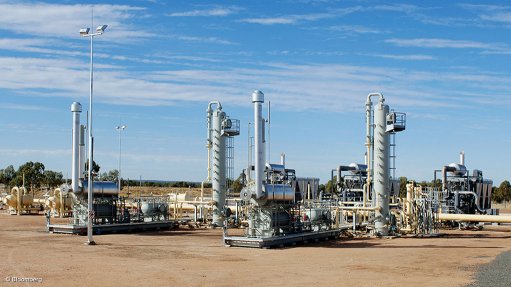
Photo by: Bloomberg
PERTH (miningweekly.com) – The Queensland government on Monday banned underground coal gasification (UCG) over fears of its environmental impact.
State Development and Natural Resources and Mines Minister Dr Anthony Lynham said that legislation to ban the UCG process would be introduced before the end of the year.
“We have looked at the evidence from the pilot-operation of UCG and we’ve considered the compatibility of the current technologies with Queensland’s environment and our economic needs.
“The potential risks to Queensland’s environment and our valuable agricultural industries far outweigh any potential economic benefits,” he said.
Lynham said that the ban applied immediately as government policy, with legislation to be introduced to the Parliament by the end of the year to make it law.
“This will give certainty to the resources industry, so they know very clearly where the government stands, and to the community.
“As a government, we support our resources sector for the jobs and economic growth it generates, but UCG activity simply doesn’t stack up for further use in Queensland.”
Environment Minister Steven Miles said that the government was also taking strong steps to address issues that had arisen during the UCG pilots.
One of the companies involved in the UCG pilot, Linc Energy, was recently committed for trial in the District Court on five counts of willfully and unlawfully causing serious environmental harm.
“The investigation of Linc Energy is the largest and most expensive case ever handled by the state’s environment regulator, the Department of Environment and Heritage Protection (DEHP),” Miles said.
“The Queensland government has already provided DEHP A$15.8-million in special funding to deal with this important case. In addition, our new chain of responsibility laws will provide new powers to require that contaminated sites must be cleaned up.”
The Queensland Resources Council on Monday said it was disappointed with the decision. Acting CEO Greg Lane said the unexpected announcement of another commodity ban, without the release of the triggering evidence, could only raise concern for business confidence and investment in the state.
Greens group Lock the Gate Alliance, meanwhile, has welcomed the decision.
“We’ve been working for more than six years to have important farmland, water resources and local communities protected from the risks that this industry poses,” said spokesperson Drew Hutton.
“UCG has failed catastrophically in two of its three trial projects in Queensland over the last decade.
“No-one would jump in a car that fails 70% of the time, so why should landholders have to put up with a technology that is so demonstrably unsafe?”
UCG involves converting coal to a synthesised gas (syngas) by burning coal underground. The syngas is processed on surface to create products such as aviation fuels and synthetic diesel.
Trials have been under way for several years. Cougar Energy’s trial at Kingaroy was shut down in 2010 after benzene was detected in nearby water bores, while Carbon Energy was currently decommissioning and rehabilitating its site at Bloodwood Creek near Dalby.